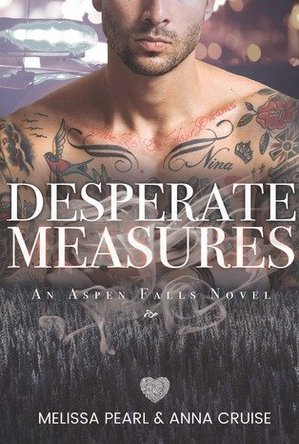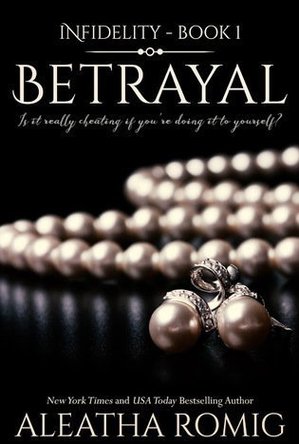Heather Cranmer (2721 KP) created a post
Jan 17, 2021
Sarah (7800 KP) rated The Frame-Up (The Golden Arrow Mysteries Book 1) in Books
Apr 16, 2020
My main problem is the character of MG herself. A female geek character is a great idea, but my issue is that I found MG very unlikeable. Her attitude and actions started off fairly well, but by the end I found myself getting so irritated by her inability to listen to other people and her stubborn and rash attitude. The romance aspect of this novel doesnt help matters - it sounds like every geeks dream and so farfetched and ridiculous it's laughable. This could not be any more predictable and cliched than it already is. Matteo as a character too seems fairly undeveloped and comes across as a rather one dimensional love interest.
This is a shame as the idea behind the story is quite interesting and rather fun to read. There's also some very decent minor characters like Lawrence who are a lot more intriguing and fun that should've been featured more. I also loved the references to geek and pop culture, and overall this aspect of the book was a lot of fun. I did find the lack of resolution in some parts of the story frustrating - your typical sequel baiting. I do have the sequel to read which I probably will read as I enjoyed this book enough, but I pray for a resolution as I doubt this series will hold my attention enough longer than that.

Camino Winds
Book
The next book in the no 1 Sunday Times bestselling Camino Island series! When Hurricane Leo...

Memorial
Book
The debut novel from a rising literary star: a funny, sexy, sensual examination of two young men...
Literary Fiction Romance Houston Osaka

Desperate Measures (Aspen Falls #5)
Book
Camila has spent the last ten years trying to leave her dark past behind…but when Alex turns up on...
Contemporary Romance Suspense

Betrayal (Infidelity, #1)
Book
One week. No future. No past. No more. Alexandria Collins has one week to live carefree—no ghosts...

An Impossible Mate (Strength of the Pack #1)
Book
The line between order and chaos, heartbreak and happily ever after, has never been thinner… or...
MM Paranormal Romance

Will (Almstead Island: Newcomer’s Club #1)
Book
What could go right with a social worker Daddy and an injured boy? Will As a social worker on...
Contemporary MM Romance Daddy kink

Emil (Almstead Island: Newcomer's Club #3)
Book
What could go right with a loyal Daddy and a boy scared to make another mistake? Anders Anders...
Contemporary MM Romance Daddy / boy
Hazel (1853 KP) rated This Secret We're Keeping in Books
May 25, 2017
A pupil and a teacher. Is it ever right to break the rules? This is the dilemma which debut author Rebecca Done basis her novel on. This Secret We’re Keeping is set seventeen years after a maths teacher began an inappropriate relationship with a schoolgirl; but did he really deserve what happened to him, after all he loved her and she loved him?
Jess has never got over her love for the teacher she ran away with when she was fifteen. Although she has got her life together: living in Norfolk, freelance catering business, a rich boyfriend; she cannot help but think back to way Mr. Landley, Matthew, made her feel. Suddenly, after a chance encounter, Matthew is back in her life with a new name, Will, and a girlfriend and daughter. Delighted to see each other again, it is not long before they fall back into their illicit affair, however the potential consequences are almost as bad as the previous time.
This Secret We’re Keeping causes the reader to question strong personal beliefs, primarily whether a teacher-student relationship is as wrong as it sounds. If certain events in this novel were to be made public through the media, the majority would instantly hate Matthew, deem him a paedophile, and be satisfied with his punishment. However on reading the situation from his point of view, initial opinions begin to crumble. It appears he genuinely loved Jess, and she him; there were no abusive occurrences, and it was Jess that instigated the relationship in the first place. Did Matthew truly deserve to go to prison for something that would have been legal in a year’s time?
Matthew/Will’s narrative helps to show that it is virtually impossible to pinpoint a single moment that changes a life forever. At which point did he know that he had stepped over the line from right to wrong? In hindsight it is fairly obvious, but at the time the warning signs are not so clear.
Due to the challenging of preset judgments, This Secret We’re Keeping can often be difficult to read. Whilst on the one hand logic will be screaming, “This is wrong!” Done plays with her readers’ sentimentalities to consider the other side of the argument. As the novel progresses it becomes easier to fall in line with Jess and Matthew/Will’s viewpoints, however a brief interaction towards the end forces readers to temporarily reconsider their forgone conclusion. After all, how much can a first person narrative really be trusted?
Having read the blurb I admit I was a bit wary about reading this book. For one, it falls under the genre of Chick Lit, which I am not all that fond of, but secondly the book’s theme appeared rather controversial. On the whole, This Secret We’re Keeping was much better than I was anticipating, however I began to lose interest towards the end as nothing much had changed throughout the present day chapters, and it was already obvious how the past narrative would pan out. The ending is also frustratingly ambiguous, as we never find out whether either of the key characters gets a “happy ever after.”
If you are someone who enjoys Chick Lit, do not let the themes of the book put you off. This Secret We’re Keeping is essentially a romance story, one that is written remarkably well for a first time author. Rebecca Done will be a name to look out for in the world of contemporary literature.

